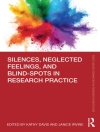Elwick explores how the concept of ‘compound individuality’ brought together life scientists working in pre-Darwinian London. Scientists conducting research in comparative anatomy, physiology, cellular microscopy, embryology and the neurosciences repeatedly stated that plants and animals were compounds of smaller independent units. Discussion of a ‘bodily economy’ was widespread. But by 1860, the most flamboyant discussions of compound individuality had come to an end in Britain. Elwick relates the growth and decline of questions about compound individuality to wider nineteenth-century debates about research standards and causality. He uses specific technical case studies to address overarching themes of reason and scientific method.
关于作者
James Elwick is associate professor of science and technology studies at York University. He is the author of Styles of Reasoning in the British Life Sciences: Shared Assumptions, 1820–1858, and currently works on how standardized achievement tests actually became standardized.












